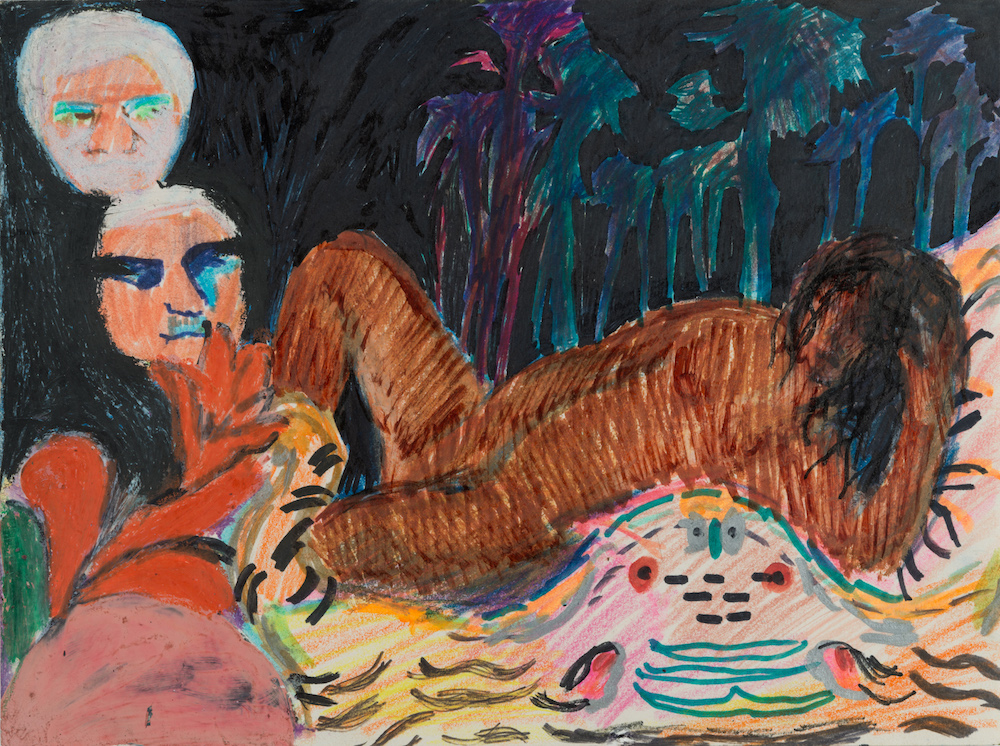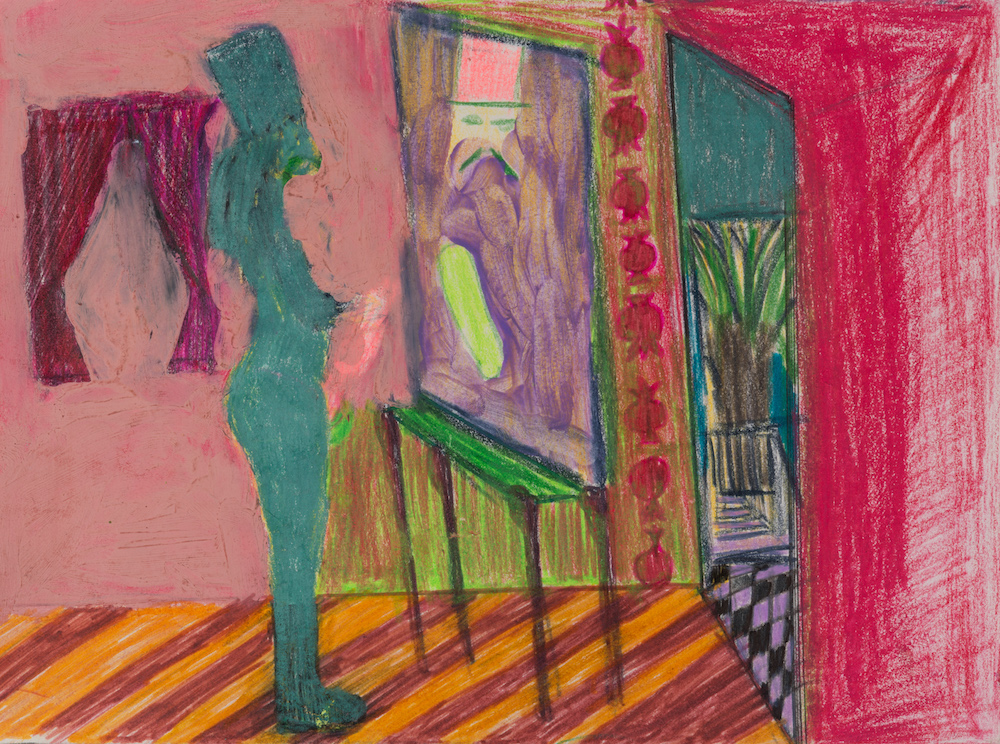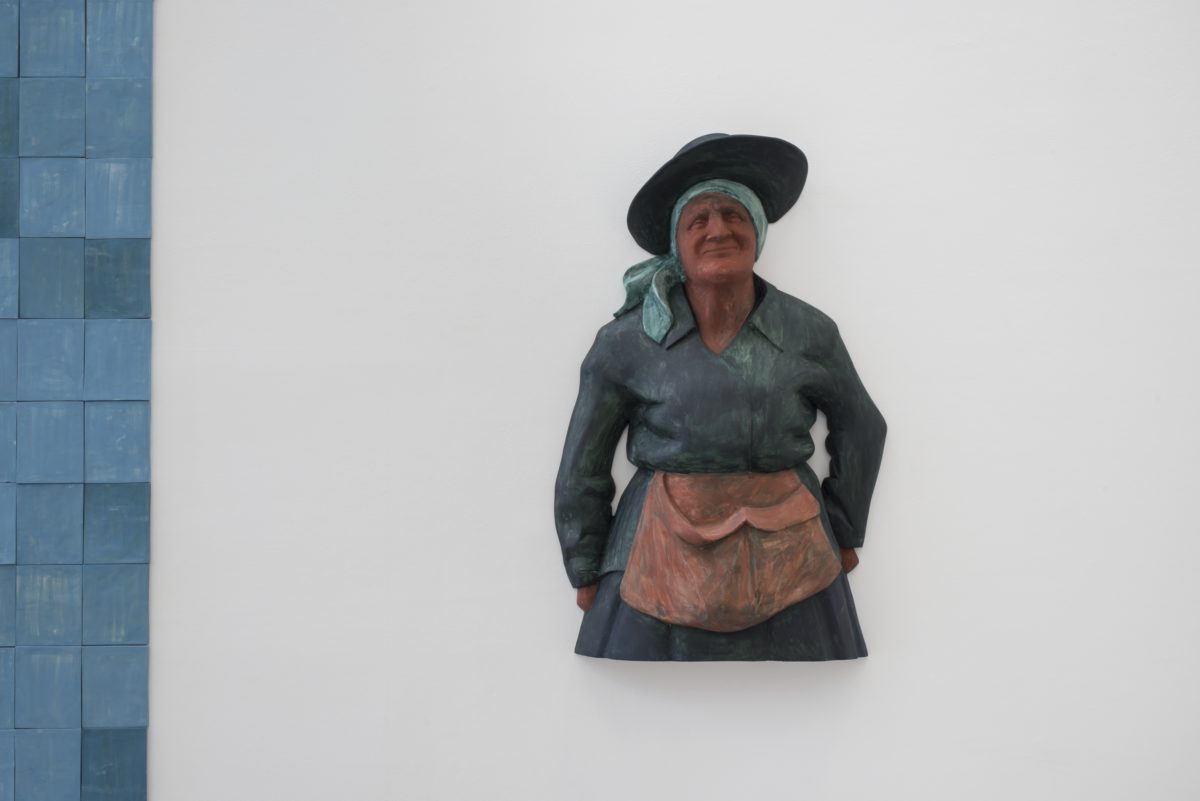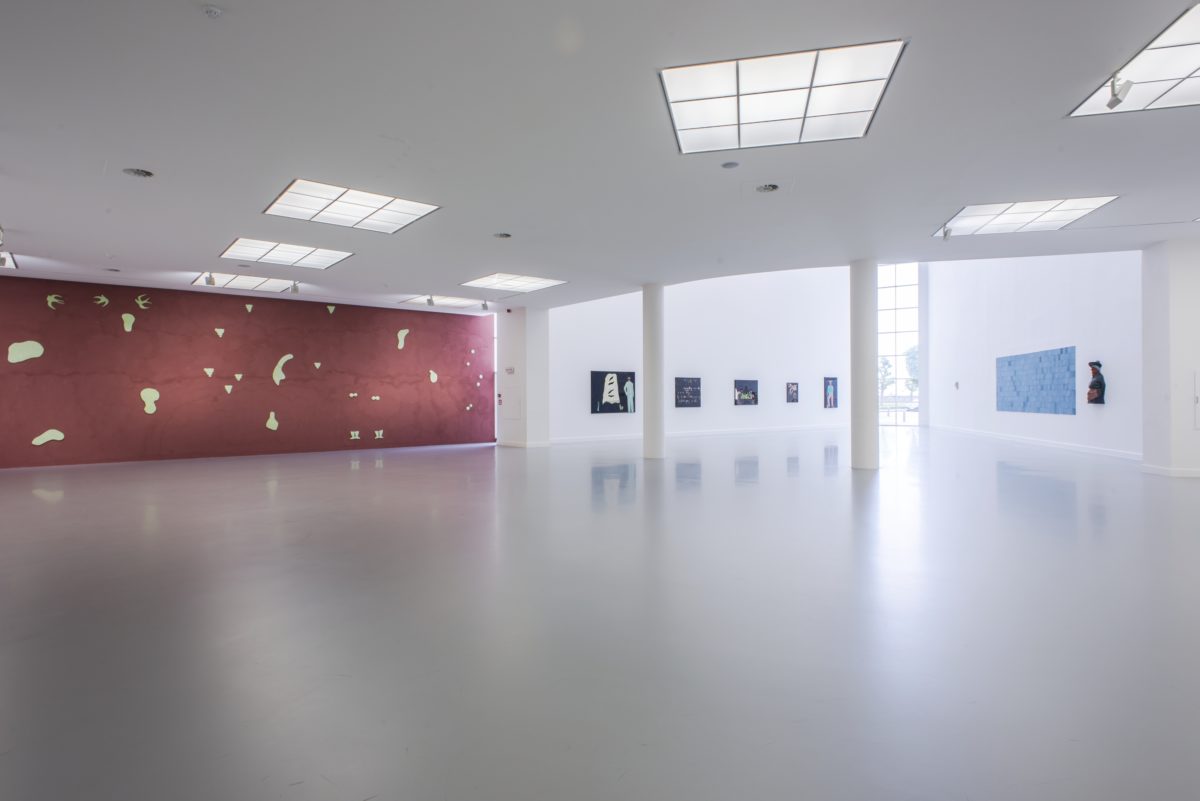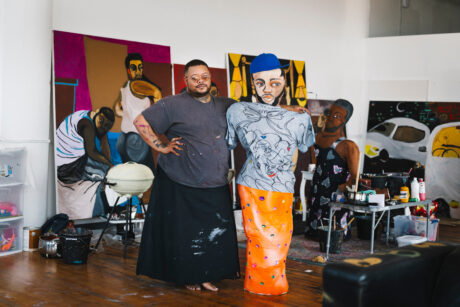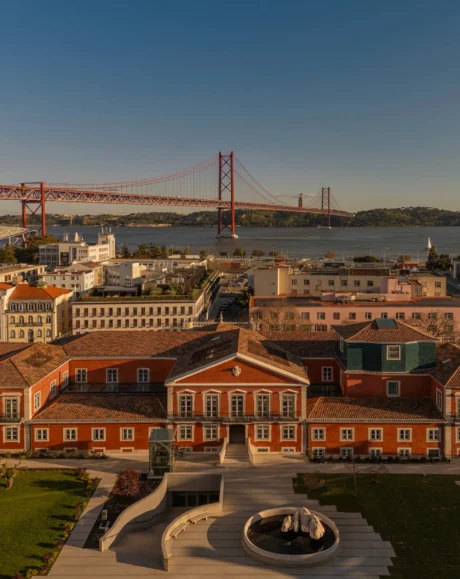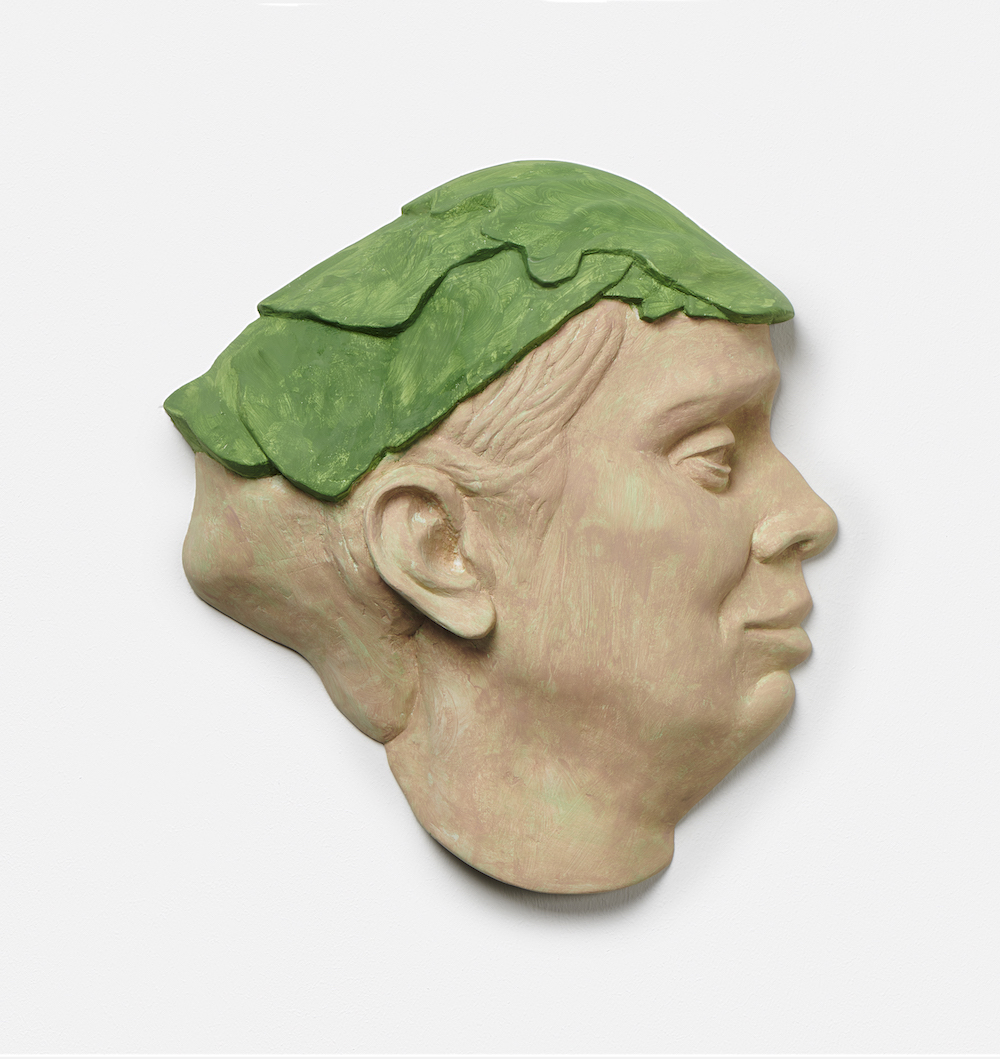
“Khairos” is a Greek word for those rare moments where, for a split second, time “opens up”, everything falls perfectly into place and life becomes yours for the taking. It is a moment to grab. To recognize khairos, let alone seize it, however, requires an extraordinary sensitivity to what unfolds in front of you. It could be said that Georgian artist Thea Gvetadze has this sensibility and her artworks—recently shown at Contemporary Istanbul (CI) by rising Tbilisi gallery, LC Queisser—are the products of such moments.
Gvetadze’s paintings, sculptures and installations monumentalize the individuals, scenes and things that have revealed something to her and profoundly shaped her as a person. Any exhibition of her work therefore becomes an autobiography of sorts. I met the forty-eight year old, Tbilisi-based artist at CI, where we discussed her highly personal practice—where art and the self are one and the same—reaching the “next level”, and how young women can reclaim their power.
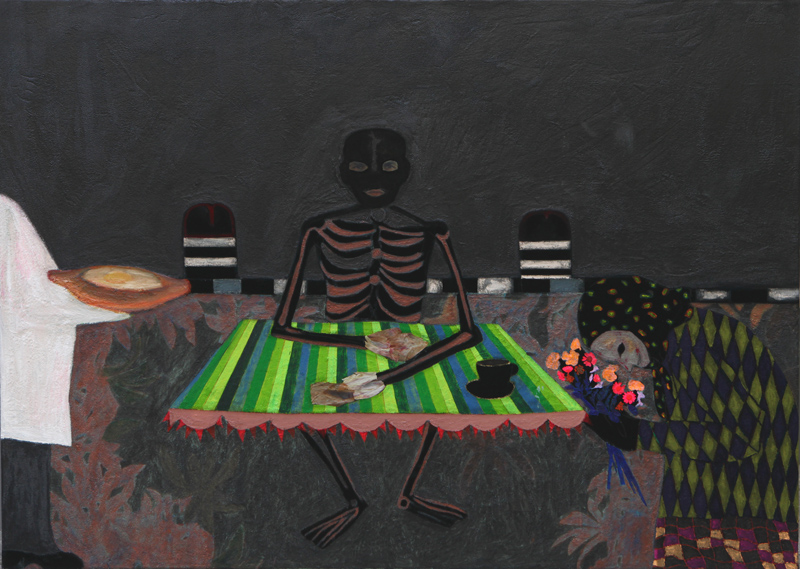
Thea Gvetadze is the type of person who sees a bounty of beauty in the most ordinary settings. “The source of my art is my life,” she tells me when we meet. She feels no need to look to the art of others for inspiration—she rarely reads and hasn’t watched a film in years—because she has “enough already. I feel things so intensely—there’s no room for any more.” Her artworks are paeans to the people, images and objects from daily life that strike her with wonder and show her new “ways of being”.
“I have the feeling I’ve freed myself from my past, my knowledge, from being anything”
A particularly significant “khairos” moment happened in the Georgian mountains a few years ago (she moved back to her homeland six years ago after two decades living and working in Germany, and Amsterdam before that). The artist had long had a nagging feeling that her given name didn’t match up with who she knew herself to be—or could be—but she couldn’t come up with an alternative. In the mountains of Svaneti, she finally found her moniker. A local boy mentioned that his mother was called Merlani, an unusual, rather exotic name in Georgia. It clicked. “I had the feeling I was fainting,” she tells me. “‘I guess I found my name,’ I told him. Of course, he had no idea what I was talking about! It’s not even about the name—it’s about reaching another level in life. I have the feeling I’ve freed myself from my past, my knowledge, from being anything.”
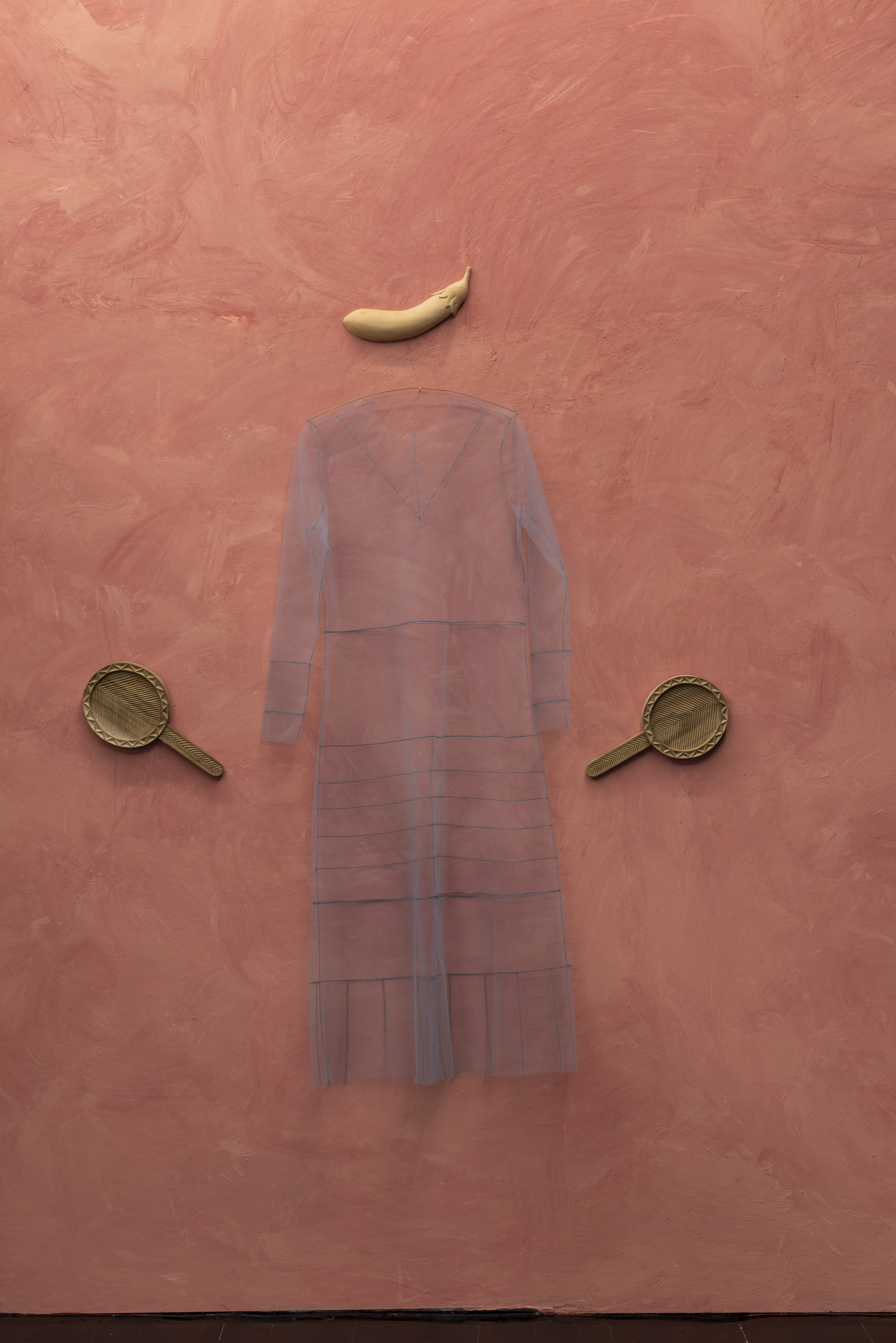
Becoming Thea Merlani (2018)—a painting installation that was on view at CI—is an emblem for the artist’s new name. The sensitive work (its composition appeared to Gvetadze as a vision) features an ash-blue mesh dress that “hovers” against a dark mauve wall like a serene angel. The delicate garment is flanked by two wooden “mirrors” where hands would ordinarily be, and topped with an aubergine
(it’s not a pun—or a vibrator, as Gvetadze is often asked—simply a cheeky crown, because “When you become something you need a coronation,” she laughs). The mirrors have been carved in a traditional Georgian manner from pale walnut wood, a material she chose for its simultaneous beauty and impressive strength. Together, the elements suggest a female form. “She” appears weightless, exposed, vulnerable and thus confident and resolute too, exuding a “take me as I am” attitude.
- Untitled, 2004. Mixed media on paper, 20.5 x 14.5cm
Having spent three days pushing through the ever-throbbing megacity that is Istanbul, finding “Thea Merlani” came as something of a relief. The work expressed an elegant humility, which stood out in stark contrast to the bustling fair and invited a moment of quietude in which I could have my own little “Aha!” moment. Earlier this summer most aspects of my life had changed in rapid succession, leaving me with a distinct feeling that life was unfurling itself for me—a rare moment I’d be wise to pluck. As I stood in front of Gvetadze’s angel, one word repeated in my mind several times, a little incantation. “Supine”: the word for when the palm of the hand is open and faces upward. It is a gesture that can equally signal a readiness to receive and to generously give away. “I want to be like this creature,” I thought (if “she” had limbs and a pulse, that is).
“Women must give away [rather than lose] the specific role of being a girl so they can go further”
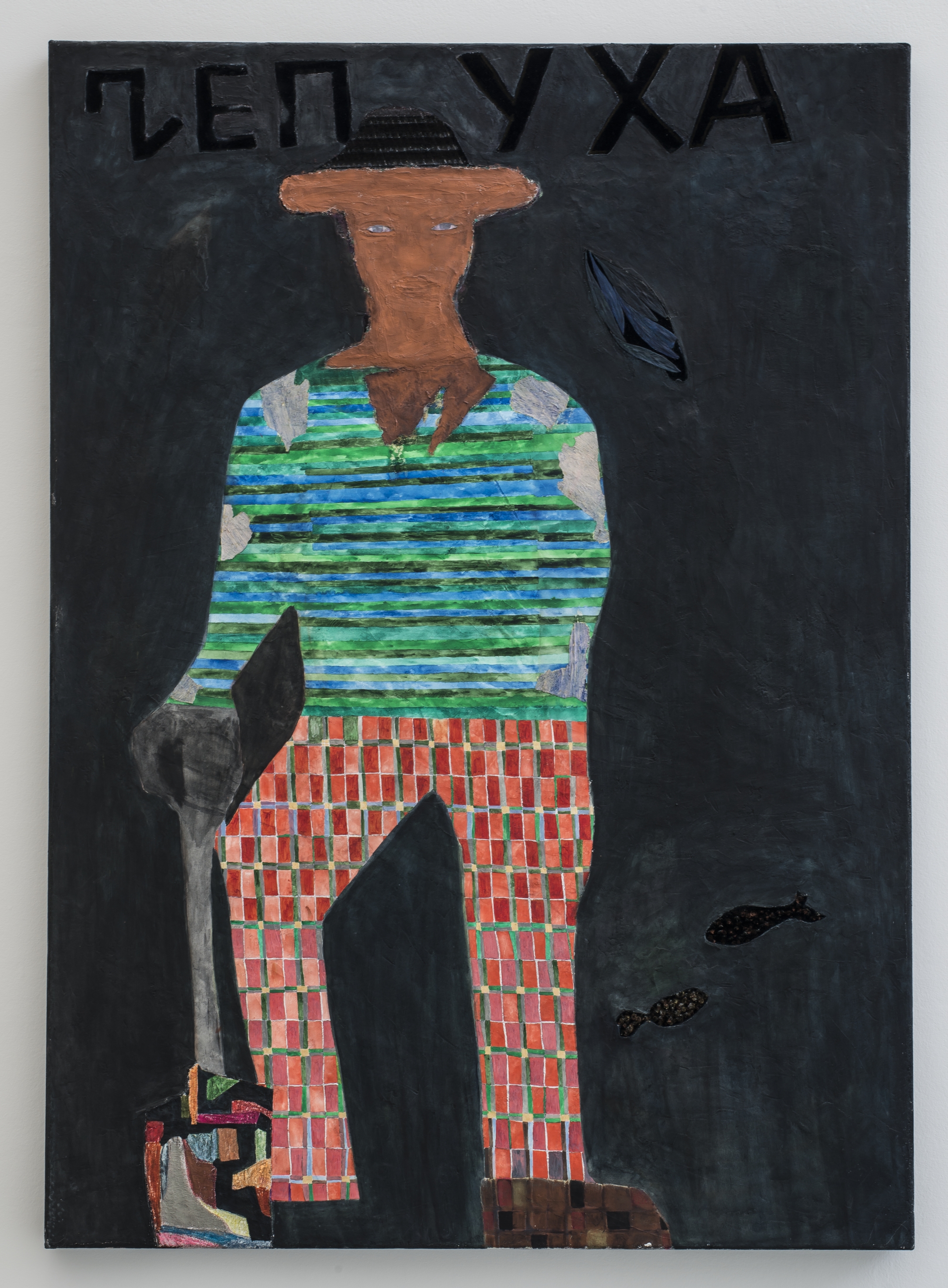
When I tell Gvetadze this, she asks my age and lets out a knowing laugh: “I knew it already! It’s always twenty-nine. It is the age when this begins to happen for women.” She promises that if women embrace the new sense of self that often emerges at this age, the discomfort of what it took to get here—the self-tweaking, self-doubt, being hung up on whether you’re right/wrong/too much/not enough—will soon be worth it. “
What comes next is way better!” she says with certainty. “Women must give away [rather than lose] the specific role of being a girl so they can go further, and with dignity. But this is very painful. When I was twenty-nine I recognized it for the moment it was, and like a snake giving its skin away, knew I had to take it off…” From this angle, perhaps the sheer dress is not a new armour to put on, but what’s been left behind post-metamorphosis—something that’s been outgrown, no longer fit for purpose.
The work shown at CI is not the first Becoming Thea Merlani; a sculptural installation and a solo show at M HKA last year also share the title. Although Gvetadze insists there won’t be another—“what the works say is so clear, it doesn’t need to be said again”—the common title does demonstrate how her works are not discrete objects that once made are immutable. “Becoming” is an active verb––we’re never “done”.
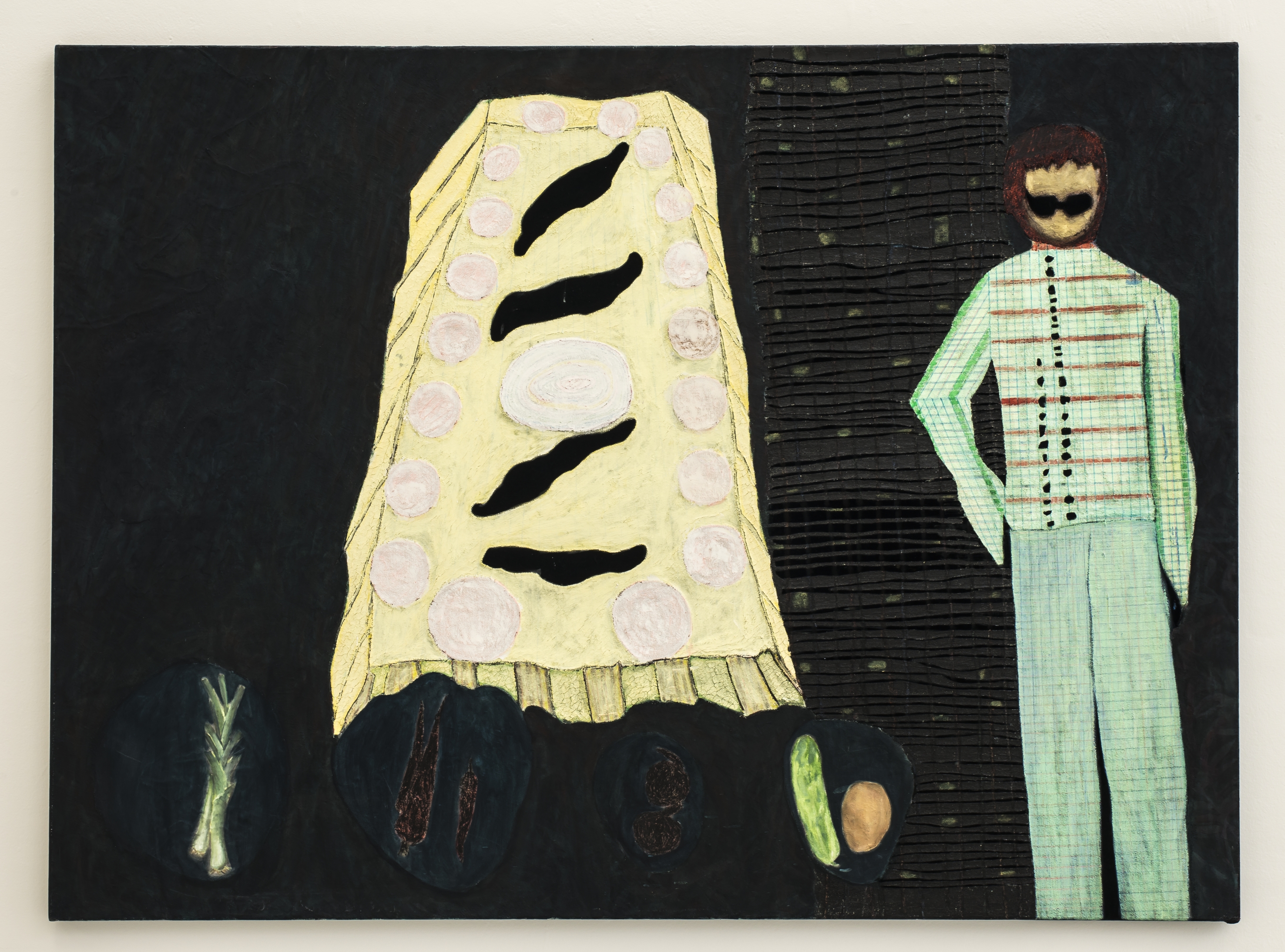
In 2013, Gvetadze visited the seaside in Batumi, a place where she spent many childhood summers. It’s a common sight to see women selling bagels on the beach. It can be gruelling work, up and down all day, under the blazing sun. “The bagels cost nothing and the women are selling them all day just to survive. It’s heart-breaking to see.” But one woman caught her eye for another reason this time. Much older than the others, simply dressed but styled “like a star”, this woman sold her bagels with total exuberance and joy. They became firm friends. “How she represented her tough life—she didn’t show it at all. When I first saw her, her back was to the sea. You couldn’t tell where the sky ended and the sea began—it was as if the horizon was vibrating. Her eyes were the same blue. She was this tiny thing covered in bagels in 45-degree heat. How she stood there. I saw in this moment how I want to learn and grow myself. I cannot ever forget this.”
“If someone or something does not match you, move on”
For last year’s M HKA show, Gvetadze produced a work about this woman: a wall sculpture made up of 410 glimmering blue ceramic tiles, alongside a life-sized bust reminiscent of old religious polychrome sculptures of saints. She named it Becoming Thea Merlani, because she saw in the bagel seller’s grace and stoicism the type of woman she wanted to be herself, she tells me. As soon as it was made, Gvetadze returned to Batumi “to show her my tribute”. The artist waited at the beach for hours. She went back the next day; still no sign. She asked the other sellers where she might find her friend. They told her the news. The day before—the same day that Gvetadze arrived—the woman had been crossing the road on her way to the beach and had been hit by a car. The driver sped off. The woman died. “A year has gone by and I can still hardly talk about it… I have to digest it and make something out of it, so people know this tiny, beautiful lady. Her attitude and dignity, it’s why I make art.”
- In SItu, 2018. Installation view. Photo by M HKA
Every Man’s Gentiana (2019), another work on show at CI, is a portrait of a mysterious woman surrounded by a few dainty flowers, painted onto deep black velvet. The flowers refer to a special moment Gvetadze experienced in the alpine region of Svaneti. The area’s altitude makes it inhospitable to most flora, the absence of which had been conspicuous to the artist as she climbed the mountain. So it was to her great disbelief that when she reached the top she saw at her feet one solitary white flower. It was a gentiana, known for its resilience and ability to grow in all conditions.
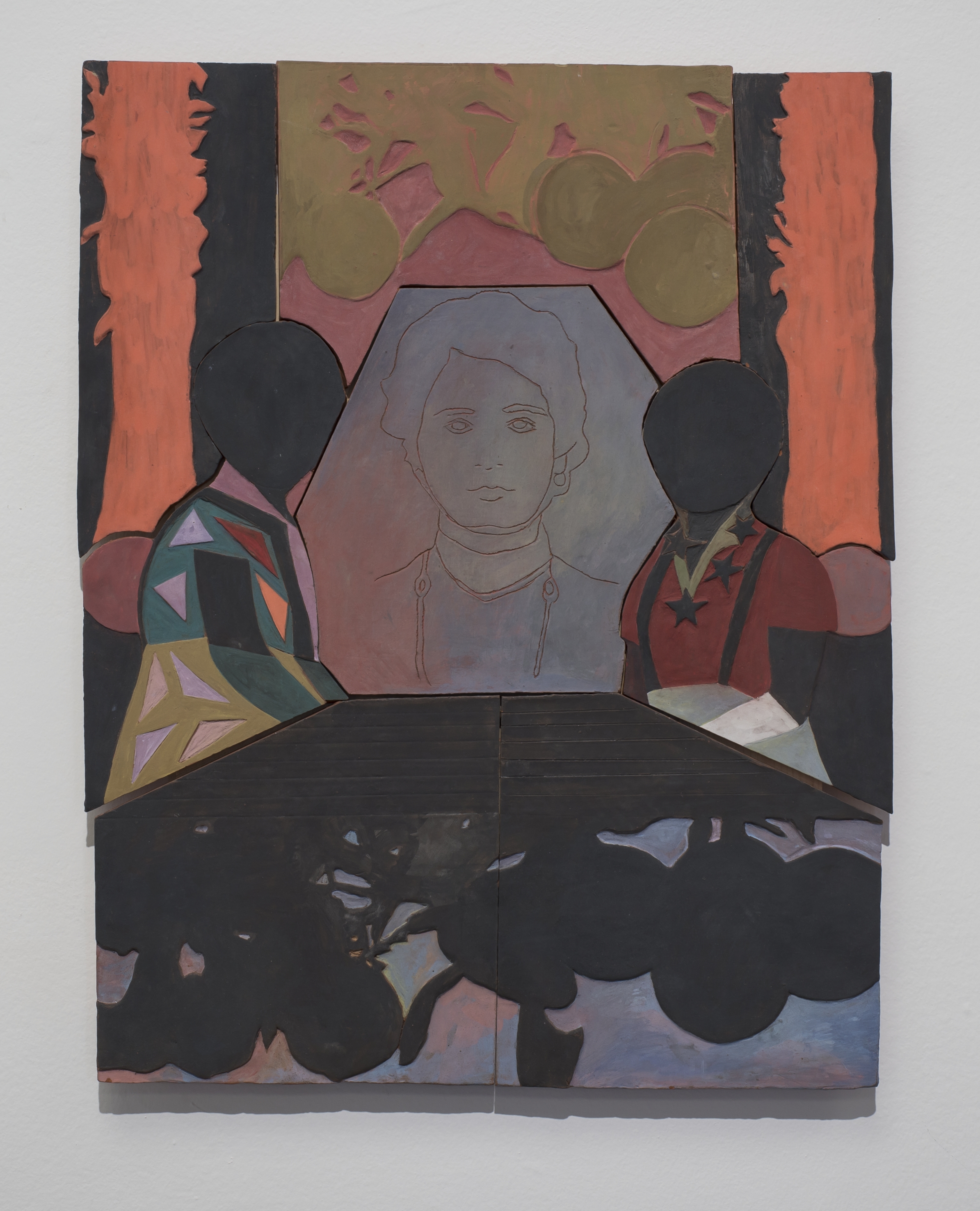
Returning to the subject of how being brazenly open with your vulnerability expresses genuine strength, Gvetadze has some sage advice: “If someone or something does not match you, move on. If you plant a seed in the ground, water it and it’s still not growing, it’s simply bad ground. Women are ready to literally give everything and it’s not appreciated. It applies to careers and friendships too. You should do your best—use rainwater, bring in other soil from India—but if it’s still not growing you better leave. It’s important to learn this now.” We can fuss over patches of unyielding land, chastise ourselves for being rubbish gardeners or watering wrong (too much, not enough), and patiently wait for the sun to come out and save the day. Or we can go find that delicate looking, albeit hardy, little flower that’s willfully growing high atop a mountain somewhere, just for us.
